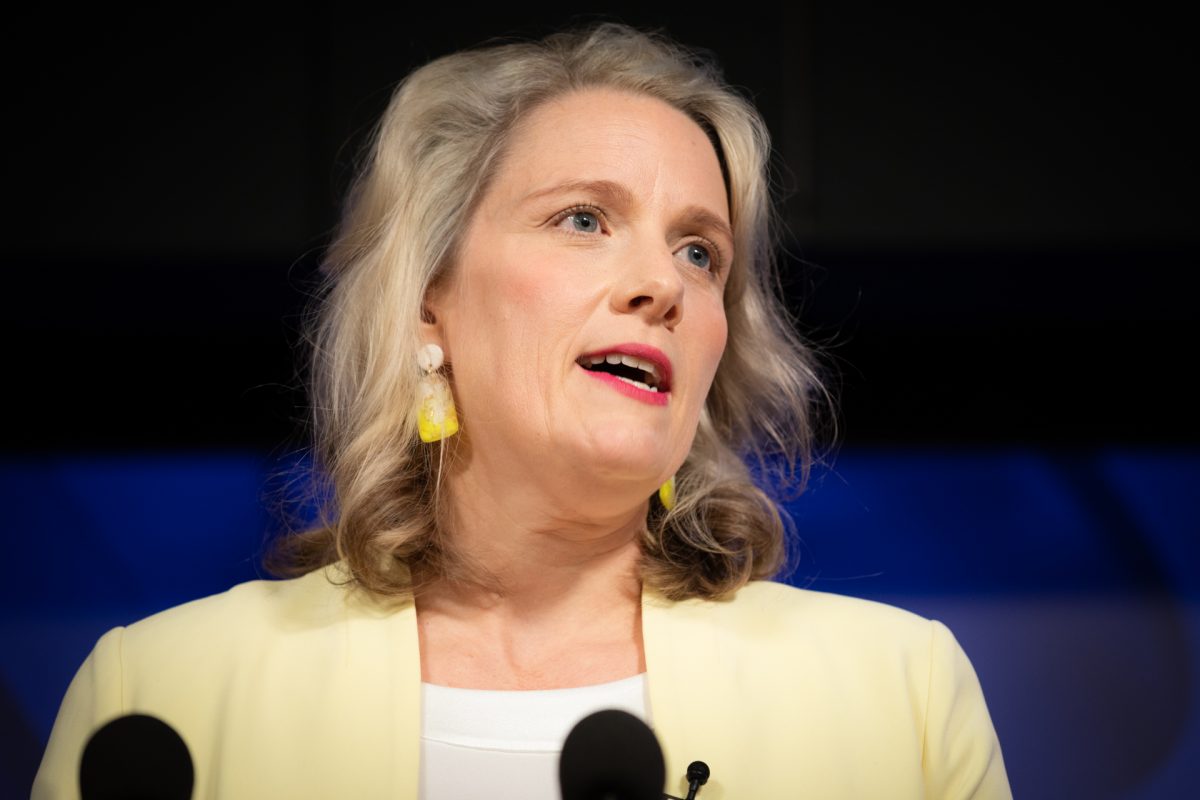
Home Affairs Minister Clare O’Neil at the National Press Club Canberra. Photo: Michelle Kroll.
Australia’s migration policy is set for a major overhaul, with reforms to focus on lifting the integrity of the system, shaking up international student visas, and reimagining the points process for permanent residency.
The government wants an end to massive complexities in the visa system and to build a process that attracts skilled migrants who will contribute to the nation’s economic future.
Speaking at the National Press Club on Thursday (27 April), Home Affairs Minister Clare O’Neil declared Australia’s migration system to be damaged and in need of a fresh approach.
“Who we invite to come here and join us in our national endeavours is one of the most important questions our government can ask,” Minister O’Neil said.
“It deserves care, love and attention. But over the last decade, it has been treated with disgraceful negligence.
“Australia’s historic migration success is rooted in permanency and citizenship. We give people the opportunity to get established in their community, educate their kids and become Australian.
“Today, our system is dominated by a large temporary migration program. And that program is not well designed.
“The tools which are meant to ensure that temporary migrants have the skills we need are broken and back-to-front.”
The Minister said Australia’s migration system was a bureaucratic nightmare, resulting in many people with the right skills giving up and going elsewhere.
To determine skills needs, the system currently uses outdated occupation lists that don’t reflect the needs of the economy, she said, and has labour market testing that both unions and business agree isn’t working.
The effect of many of these rules was that Australia often misses out on the highly skilled workers it needs.
Using ANU vice-chancellor Brian Schmidt as an example, the Minister suggested Australia could have been denied “one of the finest minds of his generation” if he had to deal with the current migration system.
“He came to Australia in the 1990s and was granted a visa in four days,” Ms O’Neil said. “Today’s world-leading young astrophysicist would wait many months just to get a look-in in our current visa system.
“And that’s if she or he were lucky, and could find their occupation on the right list.
“We can probably assume that today’s Brian Schmidt would simply take their Nobel Prize and move to Canada instead.
“That is a national tragedy that, because of our broken migration system, is likely occurring all the time.”
Describing the system as “slow and crazily complex”, Ms O’Neil said the process had serious consequences for the quality of our migration program.
“We have hundreds of visa categories and subcategories,’ she said.
“It is a mess of three-digit visa codes – the 186, the 864, the 408 – so complicated that if I drew you a diagram it would look like a tangled bowl of spaghetti.
“We have a visa class for just about everything, including one specifically for the crew of super-yachts.”
The government is moving to simplify the system by introducing a three-tiered assessment process designed to cut red tape and delays.
The first tier will be a streamlined process for high-earning workers, designed for fast turnarounds on highly skilled worker visas.
The second tier will focus on middle-income earners, with a new temporary skilled migration income threshold lifted to $70,000, up from $53,900.
And the third will review Australia’s intake of low-earning migrants.
Such a move is a strong recommendation of the report prepared by former Prime Minister and Cabinet Secretary Martin Parkinson, who was commissioned along with migration experts Professor Joanna Howe and John Azarias to review the system.
The Minister released Dr Parkinson’s report ahead of her Press Club appearance, along with the draft outline of a new migration strategy for consultation.
“The objectives of the (current) program are unclear, and successive governments and policymakers have responded to challenges through piecemeal reforms which have not addressed fundamental underlying issues,” the report states.
While the government’s final strategy plan is expected later this year, the Minister has suggested it will cut red tape and reduce the number of visa subclasses.
It will look, however, to add a class of visa to allow the smartest of graduated international students to more easily apply to stay in Australia, though it also plans to end the ruse whereby international student visas are granted to some people who are not studying here but are actually working.













